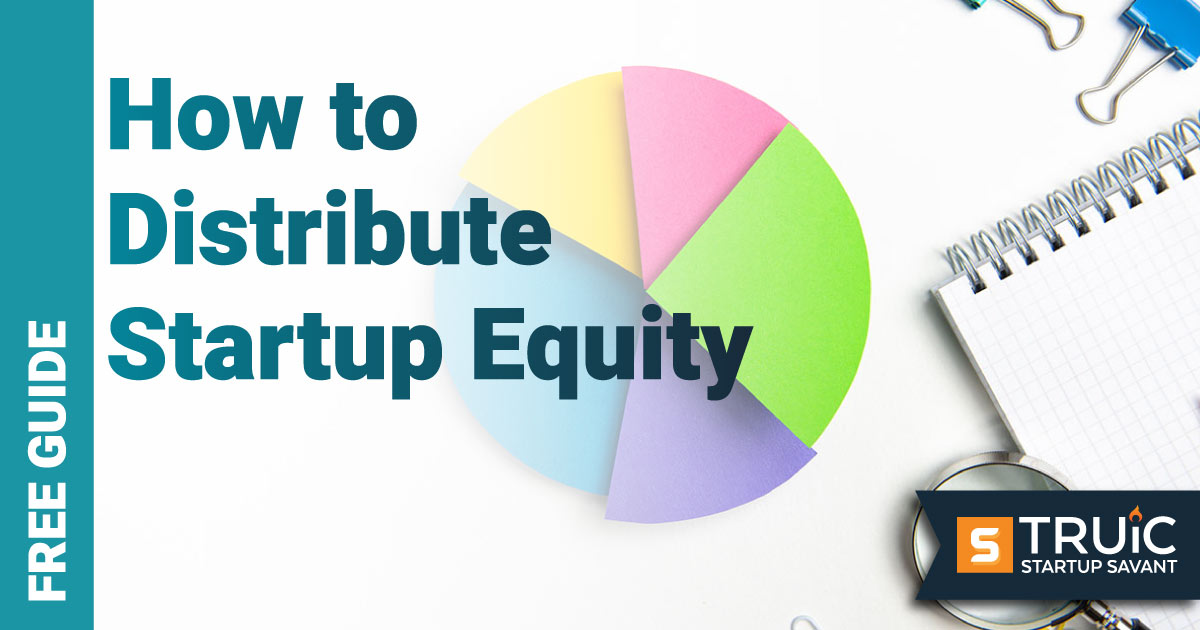Top 7 Carta Competitors & Alternatives in 2024

Last Updated: By Michaela Dale
Managing your company’s equity and stakeholders is undeniably important. Too often startups take to spreadsheets to organize this information, making errors more likely. Services like Carta help startup founders better manage their equity, whether they are raising capital or issuing employee equity.
However, there are many Carta alternatives to choose from, offering valuable equity management software. Before you sign up for Carta, these are the top Carta competitors to consider for equity management.
Best Alternatives to Carta
From employee equity management to raising new funding rounds, equity management software helps to better organize your startup equity to ensure you are compliant. While Carta is a powerful equity management software, you should consider some Carta alternatives before deciding on the right tool for your startup.
1. Pulley
Pulley is a trusted name in the startup world. Used by major players such as Y Combinator, Techstars, and 500 Global, Pulley is a comprehensive solution for founders, LLCs, law firms, private equity firms, and crypto or token management.
The system offers features that support the fundraising process from end to end, including issuance of equity to employees, modeling your fundraising, and managing access for stakeholders.
You can manage the following on the Pulley platform:
- Fundraising, including modeling rounds, issuing SAFEs, and collecting wires
- Compliance, including 409a valuation, stock-based comp reports, and more
- Issuing equity to employees and integrations with payroll software
- Control over stakeholder permissions
Pulley offers three package options: Startup ($1,200/year), Growth ($3,500/year), and a custom pricing package. The service also offers special pricing for early-stage startups with several angel investors called their ‘crowdfunding deal.’ However, the service does not offer a free plan, unlike Carta.
2. Ledgy
Ledgy is an equity management software built to make employee equity management easier, empowering companies to make the most out of their equity. One of the key features of the platform is equity plan automation. The feature decreases time spent onboarding and offboarding employees as well as helps to avoid manual errors, making it a strong choice for large companies with several stakeholders.
While Carta is billed as a “partner in fundraising,” Ledgy is more centered around employee equity management, which should be considered when choosing between the two services.
You can utilize the Ledgy platform to do the following:
- Employee equity issuance with automated equity planning
- Generate financial reports instantly
- Manage your cap table
- Stay compliance with valuation, access control, and reporting features
Ledgy offers four packages: a free Launch package for up to 25 stakeholders, Growth (€3/stakeholder/month) with a minimum of 25 stakeholders, Scale (customer pricing) with a minimum of 50 stakeholders, and Enterprise (customer pricing) with a minimum of 200 stakeholders.
3. Gust
Gust is a comprehensive software geared toward early-stage startups. The platform supports companies through several seasons of the startup lifecycle, from incorporation to securing investment.
While Carta supports companies at later stages, with features to prepare even for IPOs, Gust is better suited to startups and their founders who are just starting out. Their services are broken up into the beginning stages of the startup lifecycle – start, accelerate, and raise – with powerful tools to connect founders with other entrepreneurs, partners, and investors.
Through the Gust platform, startups can accomplish the following things:
- Incorporate their startup, plan co-founder ownership, and create benchmarks
- Raise capital, including planning the raise, finding investors, and closing the deal
- Manage their cap table and pitch deck
- Apply for incubators and accelerators with the Gust company profile
There are three Gust packages to choose from: Start ($300/year), Accelerate ($1,000/year), and Raise ($3,000/year). It is important to note that the Start package is centered largely around incorporating the company. If you’ve already formed your business, you may want to opt for either the Accelerate or Raise packages, depending on your stage.
4. Vestd
Based in the United Kingdom, Vestd is a cloud-based share scheme and equity management software for startups at every stage of the startup lifecycle. From share schemes to co-founder equity splits, the platform offers a variety of packages tailored to different equity management needs.
The Vestd platform allows users to:
- Incorporate their startup
- Participate in guided or self-serve shame scheme setup and management
- Establish founder vesting terms and prenups
- Model investment rounds and forecast future scenarios
One of the biggest advantages of the Vestd platform is its competitive pricing. Vestd offers four package options: Guided (£390/month), Standard (£280/month), Launch (£50/month), and Lite (£25/month).
5. Certent Equity Management
Certent Equity Management is a software offered by insightsoftware. The Certent family of products consists of three services: equity management, CDM and disclosure management, and DisclosureNet. The first is a standard software built to manage, administer, monitor, and report equity compensation plans.
The second is a disclosure management solution used to create a variety of reports beyond regulatory and statutory requirements. Finally, Certent’s DisclosureNet is a disclosure research tool for legal, accounting, investor relations, and business development.
Overall, Certent Equity Management is best suited to enterprises looking for an equity management tool that focuses on compliance.
Unfortunately, the platform does not offer any pricing information on their website. In order to learn more, you will need to request a quote from the company directly.
6. Astrella
Astrella leverages machine learning and artificial intelligence to provide a robust equity management solution. On the Astrella platform, cap tables and boardroom notes can be fully automated using AI to save your team time. Plus, the platform offers cloud-based stock plan management to help ensure reporting requirements are met.
Astrella makes it possible for founders to:
- Manage and create cap tables using AI
- Track employee stock plans
- Utilize scenario planning tool to run expense simulations
Astrella offers a free trial for their product that includes cap table management, employee stock administration, single company access, and reporting. Once the trial is over, customers can choose between two plans: Plus ($5/month/stakeholder) and Pro ($10/month/stakeholder). However, if your company has over 25 stakeholders, you are required to get a custom pricing quote.
7. SeedLegals
SeedLegals is an equity management solution based in the United Kingdom that offers services for startups in the UK, Ireland, France, Singapore, and Hong Kong.
For founders, the SeedLegals platform is split into three stages: start, raise, and grow. All features are organized into these categories to meet your business where it is at. However, unlike some competitors, SeedLegals doesn’t begin with incorporation. Instead, their start package is centered around essential startup contracts and preparing founders to issue equity to employees or raise capital.
On the SeedLegals platform, you can also accomplish the following:
- Raise a funding round, before a round, or a crypto round
- Manage share option schemes
- Get legal advice for a round
- Create founder and team agreements
SeedLegals offers two plans: Standard (£49/month) and Plus (£999/year). The platform also offers various services at a la carte pricing, such as investor grouping, EMI option schemes, and exit support.


